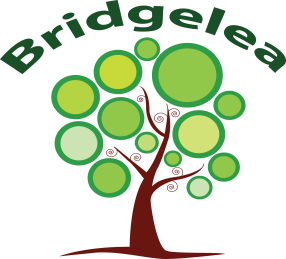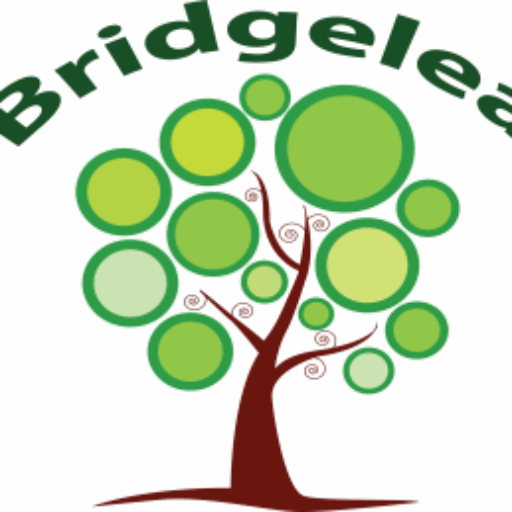PSHE
UNCRC Article 12
I have the right to be listened to and taken seriously
One of the things the UNCRC does is to make it clear that human rights apply to children and young people as much they do to adults.
Children and young people don’t have as much power as adults. They can’t vote, and they don’t have as much money. But Article 12 says they still have the human right to have opinions and for these opinions to be heard and taken seriously.
It says that the opinions of children and young people should be considered when people make decisions about things that involve them. Their opinions shouldn’t be dismissed out of hand on the grounds of age. They should be taken seriously, with their evolving capacities taken into account.
Article 12 also says children and young people should be given the information they need to make good decisions.
At Bridgelea primary school, we believe our PSHE teaching would give our children the skills and understanding to become healthy, secure, independent, and responsible members of society. Our aim is to promote the spiritual, moral, cultural, mental, and physical development of pupils at the school and in society. We prepare our pupils for the opportunities, responsibilities, and experiences of later life and give them the skills and understanding to become responsible citizens. Due to our setting being SEMH, PSHE is required to be embedded throughout the curriculum and used in a reactive and proactive way as and when incidents occur.
Rationale:
- Ensure the school is meeting statutory responsibilities with regard to preparing pupils for life and providing for their spiritual, moral, social, cultural, mental, and physical development.
- Incorporate government initiatives into planning in all key stages, for example, education recovery fund and Pupil premium (to support children through retreat and interventions, forest schools, mental health, and wellbeing).
- Ensure the delivery and teaching of the PSHE/Citizenship key skills and learning objectives, outlined by the National Curriculum, the IMatter program, and Manchester Healthy Schools requirements.
- To embed PSHE within our Nurturing Schools and Rights Respecting curriculum.
- To ensure that there is a consistent whole-school approach to teaching PSHE through curriculum and intervention across all classes and key stages
- Provide guidance and support for staff.
- Inform parents/carers to enable the whole school community to work as part of a collaborative team.
- Create a variety of meaningful and enjoyable activities to promote well-being and health in pupils, both in and out of school.
- Develop the knowledge, skills, and attributes needed by pupils to manage their lives and maximize the opportunities afforded them.
- Becoming a ‘Thinking School’ and using knowledge of metacognition to support the children to become more independent thinkers.
Definitions and purpose:
PSHE core curriculum is delivered by class teachers with support from the subject leader and the School NuPSHE, when appropriate, in carrying out health promotion across the school. Additional interventions, where appropriate, may be delivered by retreat team/class teams.
Teaching and Learning will take place in three ways:
1) Weekly discrete curriculum time to complement timetabled nurture lunch and breakfast. This is non-negotiable and must take place weekly in order to cover the requirements of the curriculum. This is known as Core PSHE. Assemblies are to be delivered to support the introduction of the PSHE themes. There will also be a number of themed weeks across the year such as Anti-Bullying Week and Health Week. These are included on the academic calendar and must be delivered as part of cross-curricular opportunities (see below).
2) There are opportunities within other parts of the curriculum that may be used to enhance the core curriculum and boost understanding of the PSHE topic. These are Cross-Curricular Opportunities.
| Subject | Cross-curricular opportunities: |
| English | Skills in enquiry and communication; stories that illustrate aspects of personal and social development. This may be a Big Read/Literacy topic planned to fit around Bullying or other PSHE themes. |
| Maths | Counting, sharing, and economics |
| Science | Drugs, including medicine, sex, health, safety, and the environment; |
| ICT | Communicating with others via e-mail; finding information on the internet and checking its relevance; e-safety |
| History | Reasons for and results of historical events, situations and changes, events, ideas, and experiences of people from the past; |
| Geography | Topical issues concerning the environment, sustainable development, land use, and study of pupils’ own locality and places in different parts of the world, including less economically developed countries. |
| Art and Design | Health and safety, healthy eating, realising that people have needs as they generate design ideas, use of technology; |
| Music | Making the most of abilities in playing or singing; issues of cultural diversity, their value, and their expression; |
| P.E | Teaching and learning about health and safety, development of personal and social skills through team and individual activities, games, and sports; the importance of keeping healthy through physical activity |
| R.E | Religious and moral beliefs, values, and practices that underpin and influence personal and social issues, and relationships. |
3) Where there is a specific need, such as bullying, racism, anger, sexualised language, or bereavement, a referral may be made to retreat to deliver a specific PSHE intervention. This may be directed back to class teams to deliver in small groups or whole class settings. It is the responsibility of the class team to identify, through contextual information and recurring incidents, where there is a need for intervention. It may be that need becomes apparent through other events such as an annual review or parental request. This is known as Reactive PSHE.
Recording of learning
Core curriculum- Staff are to maintain a PSHE scrapbook containing front sheets with objectives, a summary of each activity covered, examples of pupil work and/or photographs of activities. There must be the date, learning objective (taken from the cover sheet), and initials of the children present.
Acceptable methods of recording are as follows-
- Photographs with captions of children learning.
- Photographs of displays
- Paper copies of work.
- Post it notes/written notes of verbal responses
- A written summary of practical work undertaken.
- Photographs of children taking part in linked assemblies/themed week activities.
- Where cross-curricular work has taken place- a note to say “see science work dated 12/6” is acceptable.
Reactive PSHE– Staff are to record interventions delivered on CPOMs as a record of reactive PSHE taking place. This must include the intervention delivered, the reason for needing the intervention, and a brief summary of engagement. To be filed under the “Retreat intervention” tab on CPOMs.
Overview of curriculum content.
- See PSHE Overview Document.
Monitoring and accountability.
The headteacher is responsible for ensuring that PSHE is taught consistently across the school.
Staff are responsible for:
- Delivering weekly PSHE sessions in a sensitive way
- Modeling positive attitudes to PSHE
- Monitoring progress
- Responding to the needs of individual pupils, making retreat referrals where necessary.
The teacher who is responsible for PSHE is Molly Smith. Regular monitoring will take place of delivery of the Core Curriculum and interventions. Coverage will be monitored and regular pupil voice activities are done to assess learning.
Pupils are expected to engage fully in PSHE and, when discussing issues related to PSHE, treat others with respect and sensitivity




